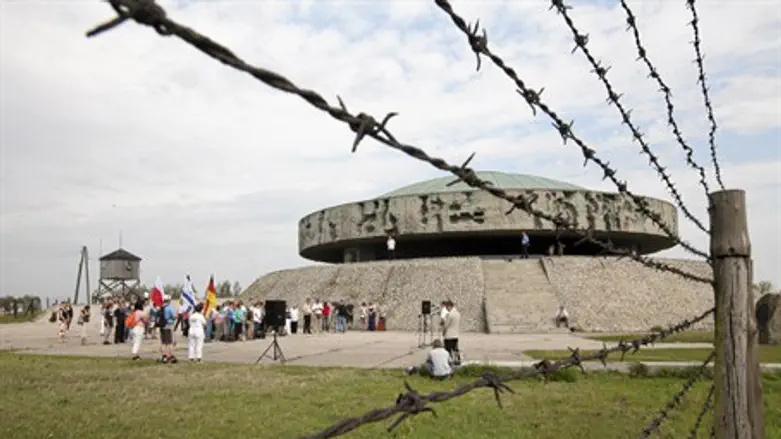
Dozens of suspected Nazi war criminals and SS guards collected millions of dollars in Social Security payments after being forced out of the United States, an Associated Press (AP) investigation revealed Sunday has found.
According to AP, the payments flowed through a legal loophole that has given the U.S. Justice Department leverage to persuade Nazi suspects to leave. If they agreed to go, or simply fled before deportation, they could keep their Social Security, according to interviews and internal government records.
Among those who benefited, the investigation found, are armed SS troops who guarded the Nazi network of camps where millions of Jews perished; an SS guard who took part in the brutal liquidation of the Warsaw ghetto that killed as many as 13,000 Jews; a Nazi collaborator who engineered the arrest and execution of thousands of Jews in Poland; and a German rocket scientist accused of using slave labor to build the V-2 rocket that pummeled London.
AP's findings are the result of more than two years of interviews, research and analysis of records obtained through the Freedom of Information Act and other sources.
The Justice Department denied using Social Security payments as a tool for removing Nazi suspects, noted the news agency, but records show the U.S. State Department and the Social Security Administration voiced grave concerns over the methods used by the Justice Department's Nazi-hunting unit, the Office of Special Investigations (OSI).
State officials derogatorily called the practice "Nazi dumping" and claimed the OSI was bargaining with suspects so they would leave voluntarily.
Since 1979, AP found, at least 38 of 66 suspects removed from the United States kept their Social Security benefits.
Legislation that would have closed the Social Security loophole failed 15 years ago, partly due to opposition from the OSI. Since then, according to AP's analysis, at least 10 Nazi suspects kept their benefits after leaving. The Social Security Administration confirmed payments to seven who are deceased. One living suspect was confirmed through an AP interview. Two others met the conditions to keep their benefits.
Of the 66 suspects, at least four are alive, living in Europe on U.S. Social Security, according to the report.
In newly uncovered Social Security Administration records, AP found that by March 1999, 28 suspected Nazi criminals had collected $1.5 million in Social Security payments after their removal from the U.S.
Since then, AP estimates the amount paid out has reached into the millions. That estimate is based on the number of suspects who qualified and the three decades that have passed since the first former Nazis, Arthur Rudolph and John Avdzej, signed agreements that required them to leave the country but ensured their benefits would continue.
Among those who benefited from this loophole, AP discovered, is Jakob Denzinger, against whom Croatian prosecutors opened a war crimes investigation last January, on suspicions he was a guard in several Nazi concentration camps during World War II.
The Social Security Administration refused AP's request for the total number of Nazi suspects who received benefits and the dollar amounts of those payments.
Spokesman William "BJ" Jarrett said the agency does not track data specific to Nazi cases. A further barrier, Jarrett said, is that there is no exception in US privacy law that "allows us to disclose information because the individual is a Nazi war criminal or an accused Nazi war criminal."
The Justice Department declined AP's request for an official to speak on the record. Spokesman Peter Carr said in an emailed statement that Social Security payments never were used as an incentive or as a threat to persuade Nazi suspects to depart voluntarily.
In recent months, Germany has begun a crackdown on former Nazi war criminals and made several arrests of suspected criminals.
Some 220 others are still being investigated for possible charges but have not been located.
The series of arrests comes following the 2011 Munich trial of John Demjanjuk, a Nazi war criminal charged of assisting in the murder of 28,060 people at the Sobibor death camp and sentenced to five years. He died in 2012.
Germany said in May that some 20 former guards at the Majdanek death camp could face charges, following a widespread probe of the Nazi SS men and women who served there during World War II.